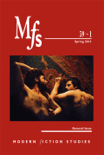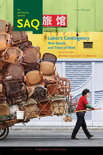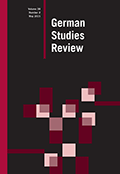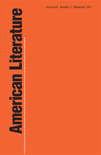
PORTUGUESE STUDIES
Scope & Guideline
Unveiling the Richness of Portuguese History
Introduction
Aims and Scopes
- Interdisciplinary Literary Analysis:
The journal emphasizes literary studies that engage with diverse genres, authors, and historical contexts, particularly within Portuguese and Brazilian literature. - Cultural and Historical Contextualization:
It focuses on the cultural and historical narratives that shape Portuguese-speaking societies, exploring themes such as colonialism, postcolonialism, and identity. - Diversity and Intersectionality:
The journal highlights the intersectionality of race, gender, and sexuality in literature and arts, promoting the voices of marginalized communities within Lusophone cultures. - Global Lusophone Studies:
The journal explores the transnational dimensions of Lusophone studies, examining the interconnectedness of Portuguese-speaking cultures across the globe. - Ecological and Socio-political Themes:
Recent publications have increasingly addressed ecological issues and socio-political themes, reflecting on the role of literature in addressing contemporary challenges.
Trending and Emerging
- Critical Fabulation and Intersectionality:
There is an increasing trend towards critical fabulation, particularly in relation to marginalized voices, reflecting a broader interest in intersectionality within literature. - Ecological and Environmental Narratives:
Emerging themes include ecological thinking and environmental narratives, suggesting a growing concern for sustainability and the representation of ecological crises in Lusophone literature. - Queer Studies and LGBTQ+ Representation:
Recent publications have highlighted queer studies and LGBTQ+ representation, indicating a shift towards more inclusive discussions of sexuality in Lusophone literary contexts. - Transnational and Diasporic Studies:
There is a noticeable increase in transnational studies that examine diasporic experiences and the global interconnectedness of Portuguese-speaking communities. - Postcolonial Critique:
The journal is increasingly focused on postcolonial critiques, exploring the legacies of colonialism and the complexities of identity within contemporary Lusophone societies.
Declining or Waning
- Traditional Canonical Literature:
There seems to be a waning interest in traditional canonical texts without critical reexamination, as newer contributions focus on contemporary works and underrepresented voices. - Purely Historical Narratives:
There is less emphasis on purely historical narratives that do not connect with current socio-cultural discussions, indicating a shift towards literature that engages more actively with contemporary issues. - Homogeneity in Literary Themes:
Themes that previously dominated discussions, such as purely romantic or nostalgic portrayals of Lusophone culture, are being overshadowed by more complex and critical narratives.
Similar Journals

Revista de Letras
Connecting Ideas: Literature, Philosophy, and BeyondRevista de Letras is an esteemed academic journal published by Universidade Estadual Paulista (UNESP), dedicated to the fields of Literature and Literary Theory, as well as Philosophy. With its ISSN 0101-3505 and E-ISSN 1981-7886, the journal serves as a significant platform for the dissemination of scholarly research and critical thought, particularly within the Brazilian context and beyond. Operating from Araraquara, SP, Brazil, the journal spans the period from 2004 to 2023, featuring a diverse array of articles aiming to explore various literary and philosophical discourses. Despite its current Q4 ranking in both the Literature and Literary Theory and Philosophy categories, the journal continues to foster a vibrant academic community, promoting rigorous scholarship and intellectual engagement. Researchers, professionals, and students alike are invited to contribute to and engage with the evolving narratives presented in this publication, aiming to enhance understanding and facilitate discussions within these crucial fields.

Limite-Revista de Estudios Portugueses y de la Lusofonia
Delving into the Nuances of Portuguese Linguistics and LiteratureLimite-Revista de Estudios Portugueses y de la Lusofonia, published by the Universidad de Extremadura, Facultad de Filosofía y Letras, is a prominent academic journal dedicated to the study of Portuguese and Lusophone literature, culture, and linguistics. With an ISSN of 1888-4067 and an E-ISSN of 2253-7929, this journal serves as a vital platform for researchers, scholars, and students interested in the rich tapestry of Portuguese-speaking countries and their contributions to global culture. With a strong commitment to fostering interdisciplinary dialogue, Limite aims to publish innovative research that examines historical contexts, contemporary issues, and social dynamics within the Lusophone world. The journal upholds high academic standards and is indexed in various databases, enhancing its visibility and impact within the scholarly community. While currently not providing open access, Limite continues to be a key resource for anyone seeking to explore and deepen their understanding of Portuguese studies, making it an indispensable addition to academic libraries and personal collections alike.

MFS-Modern Fiction Studies
Illuminating the Future of Fiction StudiesMFS-Modern Fiction Studies is a premier journal in the field of literature and literary theory, published by Johns Hopkins University Press. With an impressive impact factor and a 2023 classification in Q1, this journal stands out as a vital resource for scholars, researchers, and practitioners interested in contemporary fiction analysis and criticism. The journal aims to foster innovative scholarship, enhance discussions around literary trends, and explore the intricacies of modern narrative forms. Notably, it ranks #119 among 1,106 in the Scopus Arts and Humanities category, placing it within the top 89th percentile. Published four times a year, MFS is committed to making significant contributions to the understanding of modern fiction, making it a must-read for anyone vested in the evolution of literature. Access options are available through institutional subscriptions, ensuring that readers can engage with cutting-edge research and discourse in the literary community.

Small Axe
Advancing Critical Conversations in Cultural StudiesSmall Axe is a distinguished academic journal published by DUKE UNIVERSITY PRESS, focusing on the intersections of Cultural Studies, Literature and Literary Theory, and Sociology and Political Science. With an ISSN of 0799-0537 and an E-ISSN of 1534-6714, this journal has garnered significant recognition in its field, achieving a Q1 ranking in Literature and Literary Theory and a Q2 in Cultural Studies as of 2023. Its commitment to fostering scholarly dialogue on critical issues stretches through converged years from 2018 to 2024, ensuring timely and relevant contributions to the discourse. Although not an Open Access journal, it provides valuable insights and research that are pivotal for academia, driving forward conversations on social justice, identity politics, and the dynamic nature of culture. With strong Scopus ranks that affirm its impact—placing it in the 89th percentile for Literature and Literary Theory and the 65th percentile for Cultural Studies—Small Axe is instrumental for researchers, professionals, and students who are invested in the nuanced exploration of contemporary societal issues.

SOUTH ATLANTIC QUARTERLY
Unveiling the Rich Tapestry of Society and CultureSOUTH ATLANTIC QUARTERLY, published by DUKE UNIVERSITY PRESS, stands as a pivotal journal within the fields of Cultural Studies, Literature and Literary Theory, and Sociology and Political Science. With its rich historical foundation dating back to its inception in 1907, the journal has continuously provided a platform for rigorous scholarship and critical discourse. It has consistently achieved remarkable rankings, holding a distinguished place in the Q1 category across its relevant fields as of 2023, demonstrating its significant impact with Scopus rankings positioning it in the top percentiles. Though not an open-access journal, it offers a valuable repository of interdisciplinary insights that appeal to researchers, professionals, and students alike. The South Atlantic Quarterly remains essential for anyone looking to engage deeply with contemporary and historical issues spanning a broad spectrum of cultural and societal contexts, particularly through its insightful articles and critical reviews published biannually. Explore the multifaceted dimensions of the humanities and social sciences with this renowned journal, renowned for its commitment to intellectual rigor and innovative scholarship.

GERMAN STUDIES REVIEW
Advancing Interdisciplinary Insights into German StudiesGERMAN STUDIES REVIEW, published by Johns Hopkins University Press, is a premier academic journal dedicated to the interdisciplinary study of German culture and society, merging literary, historical, and cultural studies. With a commitment to advancing scholarship since its inception in 1982, this journal serves as an essential platform for researchers, professionals, and students interested in Germanic studies, boasting an ISSN of 0149-7952 and an E-ISSN of 2164-8646. While it is presently classified in the Q4 quartile of both the Arts and Humanities (miscellaneous) and Cultural Studies categories by Scopus, its wide-ranging scope includes not just traditional literary analysis, but also contemporary cultural phenomena, making it relevant to various fields. Although the journal is not open access, its contributions are vital for fostering critical dialogue and scholarly research that explores the complexities of German culture in a global context. The GERMAN STUDIES REVIEW is an invaluable resource for anyone eager to deepen their understanding of German studies and engage with cutting-edge academic discussions.

INTERNATIONAL JOURNAL OF IBERIAN STUDIES
Highlighting Diverse Perspectives on Iberian IssuesINTERNATIONAL JOURNAL OF IBERIAN STUDIES (ISSN 1364-971X; E-ISSN 1758-9150), published by INTELLECT LTD, stands as a pivotal forum for interdisciplinary research on the Iberian Peninsula, engaging with complex cultural, historical, and political narratives. Established in 2012, this journal highlights diverse perspectives and fosters scholarly dialogue within its scope bridging Cultural Studies, History, and Political Science, reflected in its 2023 Scopus rankings which place it within the Q3 and Q4 quartiles across various categories. Although currently not an open-access journal, it provides critical insights and original research essential for students, researchers, and professionals alike. The journal's commitment to exploring the multifaceted dimensions of Iberian studies makes it a significant contributor to the field, encouraging submissions that deepen understanding and promote scholarly excellence.

Metacritic Journal for Comparative Studies and Theory
Championing Interdisciplinary Research for a Global Audience.Metacritic Journal for Comparative Studies and Theory is a premier scholarly publication focusing on interdisciplinary research within the fields of Arts and Humanities, as well as Social Sciences. Published by UNIV BABES-BOLYAI, FAC LETTERS, PHANTASMA CTR IMAGINATION STUDIES, this Open Access journal has made significant strides since its inception in 2015, providing a platform for innovative comparative studies that inspire critical discourse. With an impressive Q2 ranking in both Arts and Humanities and Social Sciences, the journal showcases high-quality research that engages contemporary issues and theoretical frameworks. Its Scopus rankings further highlight its impact, with a noteworthy position in the 78th percentile for Arts and Humanities and 40th percentile for Social Sciences. As an accessible resource for researchers, professionals, and students, the journal encourages contributions that navigate complex themes of interpretation and imagination that resonate within and beyond Romanian scholarship. Discover the latest insights and foster collaborations in a dynamic academic landscape.

Revista Portuguesa de Historia
Unlocking the Secrets of the Past for AllRevista Portuguesa de Historia, published by the esteemed Universidade de Coimbra, Faculdade de Letras, is a prominent open access journal dedicated to the field of history. With an ISSN of 0870-4147 and an E-ISSN of 2183-3796, this journal serves as a vital resource for historians and scholars engaged in historical research. Since its transition to open access in 2016, the journal has expanded its accessibility, allowing a wider audience to engage with high-quality research findings. With an impressive Q2 ranking in the History category for 2023, it is positioned within the upper echelons of historical scholarship, reflecting its commitment to excellence. Covering a comprehensive spectrum of historical studies, the Revista Portuguesa de Historia is ideal for those seeking to explore diverse perspectives and methodologies in history, contributing significantly to the academic discourse in this dynamic field.

AMERICAN LITERATURE
Exploring the Depths of American Literary HeritageAMERICAN LITERATURE is a premier academic journal published by DUKE UNIVERSITY PRESS, dedicated to enhancing the understanding of literature produced in the United States from the colonial period to contemporary works. With its ISSN 0002-9831 and E-ISSN 1527-2117, this influential journal has maintained its status as a leader in the field, achieving a commendable Q1 ranking in Literature and Literary Theory for 2023, and holding a notable position (ranked #169 out of 1106) within its Scopus category. Since its inception in 1968, the journal has committed to publishing innovative research that explores diverse literary traditions, critical theories, and cultural contexts, making it an essential resource for researchers, scholars, and students alike. Although not available as an open-access publication, AMERICAN LITERATURE continues to play a critical role in shaping conversations around the complex narratives that define American literary heritage, inviting contributions that push the boundaries of literary studies.